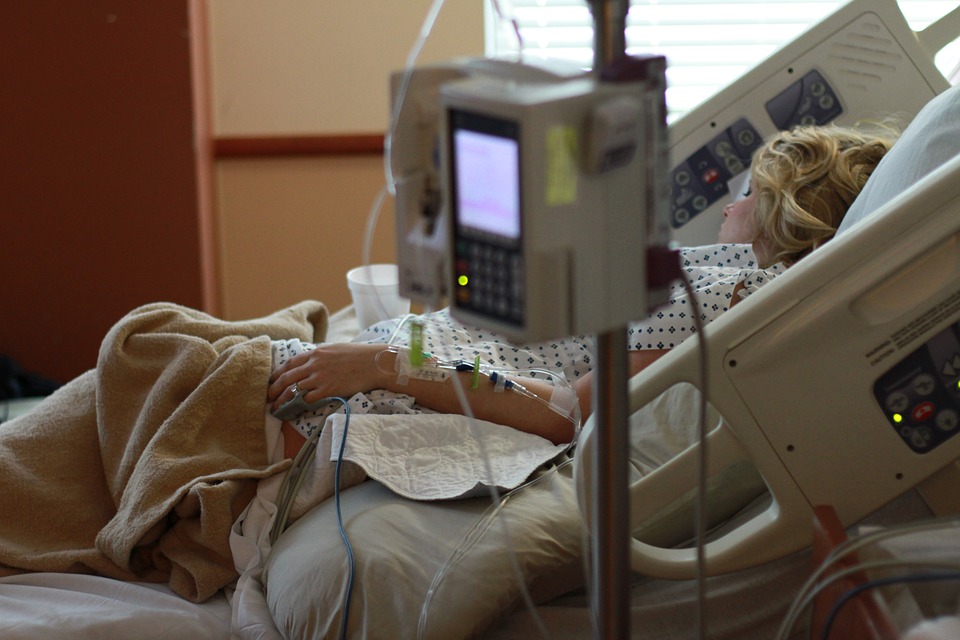
The Debate on Euthanasia and its Legal Progress Around the World
January 18, 2019
Your Weekly Commercial Awareness Update – w/c 21st January
January 25, 2019Your round-up of the stories that you should discuss at interview this week:
Criminal Justice
Reported by Paige Waters
Prison Standards Revealed as Appalling
HMP Bedford prison has been subject to an urgent notification protocol by Peter Clarke, the chief inspector of prisons. This was due to an inmate catching and killing rats in his cell.
The prison was under strict instructions to drastically improve the conditions immediately. However, two years later the prisons standards are continuing to decline. It has been found that a notice stating “please ensure doors remain shut to prevent rats from entering the wing!!!” was stuck onto a door.
The conditions within the segregation unit were described as “appalling”.
The inspection did not stop here. It has been disclosed that the cells were “filthy and decrepit” with the toilets not flushing properly either.
Clarke has commented on the matter, stating: “this inspection found that the prison has continued on a seemingly inexorable decline that is evident through the results of the four inspections carried out since 2009. It used to have a reputation as a good local prison and the collapse in standards is as sad as it is inexcusable.”
“The use of the urgent notification protocol is not something that I take lightly. I am required to have ‘significant concerns with regard to the treatment and conditions of those detained’. Sadly, in the case of HMP Bedford, that threshold was easily exceeded.”
Find out more here.
Employment Law
Reported by Radhika Morally
Well-known Retailers Raying Workers 35p an Hour
It has recently come to light that a factory in Bangladesh paying the equivalent of 35p an hour has been used not only by the Spice Girls for their t-shirts, but by major retailers Tesco, Marks & Spencer and Mothercare.
The Spice Girls have allegedly recently used the factory to produce ‘#IWannaBeASpiceGirl’ t-shirts (retailed at £19.40) to raise money for Comic Relief’s “gender justice” campaign. 100% of the proceeds were to go to the campaign which helps champion equality for women.
However, an investigation has revealed that the female employees at this factory have themselves been victims of gender discrimination, who have said that they are both underpaid and work in inhumane conditions; female employees were called “daughters of prostitutes” for not hitting unreachable targets and were forced to work despite illness.
Both Comic Relief and a spokeswoman for the Spice Girls have said that they are “shocked and concerned” at the allegation. Comic Relief have stated that the online retailer commissioned to make the t-shirts had switched suppliers away from an agreed supplier which had been ethically vetted without their, or the Spice Girls’ knowledge.
On a wider scale, the association of the factory with major British retailers has been described by Labour’s Mary Creagh as a “wake-up call”, and the retailers involved have declared that they will be conducting their own investigation into the situation. Furthermore, the Spice Girls are conducting a self-funded investigation and Comic Relief are offering refunds to anyone who bought one of the t-shirts.
Without doubt, the scandal has shed light on several issues surrounding ethical codes of practice in employment. Labour MP Rushanara Ali, the government’s trade envoy to Bangladesh, hopes that the nation can ‘learn from this terrible mistake.’
For more information, see the Guardian and the Evening Standard
Commercial Real Estate
Reported by Megan Kearns
Struggling UK high streets: Another 175,000 Jobs to be Lost in 2019
Research has warned that 23,000 shops and 175,000 jobs are to be lost from our high street in 2019 as shopping habits continue to favour purchasing goods online. The rise of ecommerce giants, such as Amazon, are swaying people away from the high street and onto shopping from the convenience of their smartphones, laptops and tablets.
These figures show the damage to the high street is only increasing, as these expected numbers trump the 20,000 stores and 150,000 jobs which were lost last year. For example, last year showed retail giants, such as House of Fraser and Poundworld, closing their doors. These statistics are inclusive of both chain and independent stores which is concerning as in effect nobody is safe. Already for 2019, renowned retailers Marks and Spencer and Debenhams have released plans to close numerous stores.
Amongst the issues the rise in ecommerce is having on the individual retailers, the real estate sector is also starting to see negative effects. The high number of retailers closing down, and subsequent empty commercial space is meaning the value of retail property is on the decline. It has been predicted that the overall value of retail property will tumble by 15.9% this year. Significantly, the Royal Institution for Charter Surveyors is guiding valuers to have an “aware[ness] of the potential significant changes in value” of retail property. The guardian describes this unusual move as a “wake-up call for listed landlords and owners of major shopping centres such as Intu Properties and Hammerson.”
The Guardian has more information here.
Family Law
Reported by Emma Ducroix
Reinforcement in the legal definition of domestic abuses
Two years ago, Theresa May and the Queen wanted to increase the definition of the domestic abuse in the legal framework.
Since 2016, as the government has as much as possible occupied with the Brexit, the Parliament didn’t really invest this case. The problem is that domestic abuses are happening every days and the reinforcement must be a national priority.
Focusing on the figures, domestic abuse concern two million people who have declared in one year that they had been a victim of domestic abuse.
The most important thing is to notice that if an inclusion of a non-physical and economic abuse in this landmark adjustment of the law is done, figures will grown.
Considering this new legal definition, measures will be taken in order to ban domestic abusers to be a part of a process in court, that is to say it will not have cross-examine anymore.
The most important here is to protect the victims more than ever and this adjustment is the first in one generation to considerate a broader view in this protection.
The impact for the victims is so huge, even in courts, this is why Dr Nicola Sharp-Jeffs, the director of the charity Surviving Economic Abuse, said adding economic abuse to the legal definition was “highly significant” and would give victims “more confidence” when they will came forward.
In an economic view, perpetrators impact the society at the rate of around £66 billion. And other facts of domestic violence impact children: their lives began in fear of marital life and these memories will remain for years.
Other important point of this reinforcement, the legislation will clarify the “Clare’s Law.”
Four years ago, a measure was introduced to allow police to tell a member of the public if there are preoccupations over about violence committed by a partner.
The definition of domestic abuse will went beyond crimes of violence including victims who are psychologically manipulated, as well as those who have been financially controlled.
The new definition will force perpetrators into behavior-changing rehabilitation programmes, make victims automatically eligible for special protections in criminal trials and set up a national “domestic abuse commissioner” tasked with improving the response and support for victims across public services.
For instance, a woman, who has suffered abuse from different partners, declared to the BBC that she has been completely controlled financially. This case went so far that she had gone through bankruptcy twice. Her husband obliged her to give him her salary and in return, he gave her a weekly allowance under surveillance of all her spendings.
Another woman victim of domestic abuse, Claire Throssell, was cross-examined by her husband – after they had separated – over access to their two children. Few times after, he went on to kill her two sons in a house fire.
The fact to coming face-to-face with her ex-partner in court, could cause an “immense distress” and a sort of “a continuation of abuse” according to David Gauke, the Justice Secretary.
Victoria Atkins, Minister for Crime, Safeguarding and Vulnerability, said:
“The draft domestic abuse bill recognizes the complex nature of these horrific crimes and puts the needs of victims and their families at the forefront.”
And Suzanne Jacob, head of SafeLives, said: “The perpetrators remain invisible and unchallenged by the system. We’re pleased the government is finally listening.”
The BBC has more information here.
Get these updates straight to your inbox every week by signing up here.



